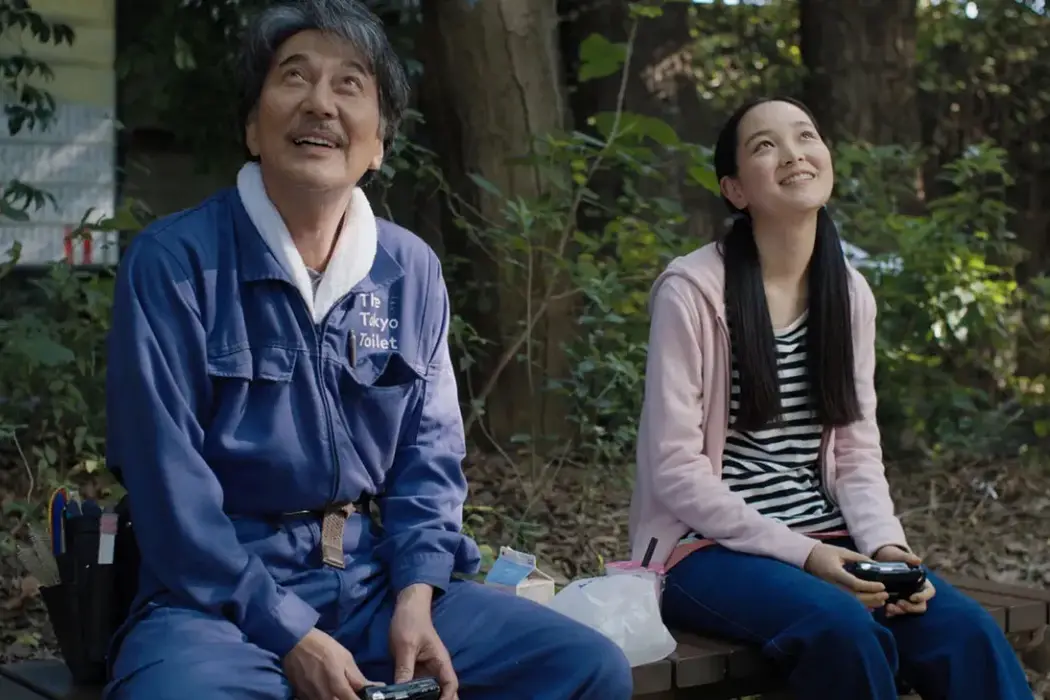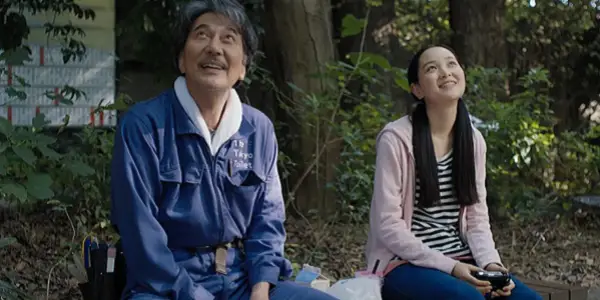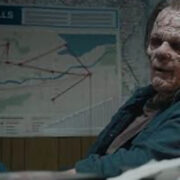New York Film Festival 2023: EVIL DOES NOT EXIST & PERFECT DAYS

Lee Jutton has directed short films starring a killer toaster,…
Craving an international vacation but too broke to travel? Allow me to suggest a trip to Japan with two of the world’s most acclaimed filmmakers, Ryusuke Hamaguchi and Wim Wenders, courtesy of their new films that screened as part of the Main Slate at this year’s New York Film Festival.
Evil Does Not Exist (Ryûsuke Hamaguchi)
Ryusuke Hamaguchi is a master at depicting all of the complexities inherent in human relationships; however, his latest film focuses less on the relationships between individuals and more on humanity’s increasingly troubled relationship with the world around us. Evil Does Not Exist, his follow-up to the Academy Award-winning Drive My Car and the equally acclaimed Wheel of Fortune and Fantasy, depicts what happens in a small rural village after a Tokyo company decides to build a glamping site there for big city tourists. The project is being rushed by a talent agency looking to branch out its business and take advantage of post-pandemic tax credits that are on the verge of expiring; as is often the case in our capitalistic world, immediate profits are deemed a far bigger priority than any future costs.

Two representatives of the company, Takahashi (Ryuji Kosaka) and Mayuzumi (Ayaka Shibutani) show up in the village to give a largely perfunctory presentation to the locals, wholly unprepared for any legitimate opposition. What follows is a lengthy, hilariously awkward scene in which Takahashi and Mayuzumi are quizzed by the incredibly knowledgeable group of citizens—led by respected odd job guy and single father Takumi (Hitoshi Omika)—on the potential ecological impact of the project, particularly the negative effects that the site’s septic tank will have on the village’s pristine mountain spring water.
True to the film’s title, it’s not that Takahashi and Mayuzumi, or even the company they work for, are evil; they’re just ignorant, doing their jobs without thinking about the ways this may affect other people. (Needless to say, we all know how dangerous blindly following orders can be, even if one’s own intentions are not necessarily evil.) However, once they’re made aware, Takahashi and Mayuzumi change their tunes; upon their return to Tokyo, they encourage corporate leadership to hold off on the project until they’ve done further research into the environmental effects. Instead, their bosses demand they go back to the village and win over Takumi by convincing him to be the full-time caretaker of the site.
Needless to say, their day with Takumi doesn’t go according to plan, and Evil Does Not Exist evolves from a largely meditative drama about the effects of rural gentrification into an intense eco-thriller where it initially seems anything might happen. However, Hamaguchi plants so many clues in little pieces of dialogue and action along the way that the direction the film takes grows increasingly predictable. (Eiko Ishibashi’s lovely, plaintive score runs like an undercurrent throughout, emphasizing the growing potential for tragedy.) At one point, Takumi ominously tells Takahashi that the deer that roam freely throughout the village are only dangerous when they have either been gut-shot or are defending their young; it’s almost too obvious that Takumi is also talking about himself, whether he knows it or not.

Evil Does Not Exist contains many of the long, drawn-out scenes of incisive dialogue that Hamaguchi does so well, though the presentation scene is, for me, the high watermark of the film. Watching Takahashi and Mayuzumi grow increasingly uncomfortable as they’re forced to resort to largely empty corporate doublespeak will make you giggle and cringe simultaneously, not least because you’ll recognize their words; you’ve likely either said them before yourself or had to listen to someone else saying them at you. Just as compelling as the film’s dialogue is the way Hamaguchi and cinematographer Yoshio Kitagawa depict space and time on screen through long, static takes in which the camera lingers almost voyeuristically at a distance from the characters; many of these scenes involve Takumi silently—indeed, almost meditatively—going about his daily tasks, including chopping wood, refilling water jugs at the stream, and picking up his adventurous young daughter after school. We observe his life as peaceful, governed by routine, and untouched by the urban anxieties that Takahashi and Mayuzumi carry with them into the village.
The film culminates in a burst of violence that, rather than feeling shocking, feels largely inevitable. Is this Hamaguchi showing us that the power of nature is too strong to overcome, that we cannot escape the fate it has in store for us? Perhaps, but I wish Evil Does Not Exist hadn’t gobbled up the trail of breadcrumbs scattered throughout the plot so utterly. As I watched the film, I found myself dreading what seemed to be the obvious conclusion, and hoping that Hamaguchi was actually going to veer off into left field and surprise me. Needless to say, he did not, though the ending—so evocative in its imagery—does still contain a great deal of power. It might not reach the lofty heights of his most recent masterpieces, but Evil Does Not Exist is still a solid outing from one of contemporary cinema’s most intriguing young voices.
Perfect Days (Wim Wenders)
The new film from legendary German director Wim Wenders is a slice-of-life drama focused on Hirayama (Kōji Yakusho, who won Best Actor at Cannes for his performance), a cleaner of public toilets in Tokyo whose days are so defined by routine that he is not that dissimilar from Takumi of Evil Does Not Exist. Yet while Hamaguchi’s film contains a simmering threat of violence and upheaval that eventually boils over into tragedy, Perfect Days is much more serene; what the film lacks in dramatic momentum it makes up for with remarkable warmth and introspection, and an appreciation for the small moments of beauty that color our everyday lives.
Every morning, Hirayama wakes up before the sun has fully risen, waters the baby trees that he grows in a room of his cozy flat, then walks outside and takes a gulp of fresh air with a contented smile on his face, as though each morning is a gift that must always be acknowledged and never wasted. After grabbing a can of coffee from a vending machine, he gets in his car to drive to work, setting the tone for the day with one of his many classic rock cassettes. (These songs, which comprise the bulk of the film’s soundtrack, are not deep cuts, mind you, but some of the most basic tracks under the sun: House of the Rising Sun, Brown Eyed Girl, Sunny Afternoon, and the Lou Reed track from which the film seemingly takes its title. Yet that didn’t make me any less happy to hear them—they’re good songs! And they all tell us something about Hirayama, particularly his fondness for comfortable familiarity.)

Hirayama works while hardly saying a word, not even to his younger, more outgoing colleague, Takashi (Tokio Emoto). He has his lunch every day in the same park, where he happily takes pictures of the same trees with his old film camera. He sees the same people there: a female office worker eating by herself, a homeless man doing his own version of tai chi among the trees. They don’t speak, but there is nonetheless a strange familiarity between them. He relaxes at the public bathhouse, stops at the same underground food stall for dinner, and then goes home to read until he falls asleep—books that he picks up on the cheap shelf at the same used bookstore he always visits on his days off.
Because Hirayama’s days are so structured, small moments of the unexpected and the way he reacts to them tell us a great deal about this quiet, thoughtful man. When Takashi’s girlfriend Aya (Aoi Yamada) asks to listen to Hirayama’s tape of Patti Smith’s Horses—in particular, the track Redondo Beach—in his car with him, and thanks him with a quick kiss on the cheek, he is surprised but pleased at the gesture. When he discovers a piece of paper with the beginnings of a tic-tac-toe game left behind in one of the bathrooms he’s cleaning, he decides to join the game and takes great joy in returning to see what his mystery opponent’s next move will be. The only time we ever see him lose his temper is when he’s left in the lurch on a shift and forced to work late into the evening—something that turns his usual routine totally upside-down.
One day, his niece Niko (Arisa Nakano) suddenly appears on his doorstep, having run away from home and her mother, Hirayama’s sister. Through their interactions we learn that Hirayama is essentially the black sheep of the family, someone who doesn’t want to see his father again even after being told he’s on his deathbed. Yet Hirayama connects with Niko in a way he connects with few others; she seems to have inherited his desire for something different out of life. Perfect Days doesn’t explicitly outline Hirayama’s past for us, but one gets a sense that it was wild and unpredictable, and not at all like the regimented lifestyle in which he currently thrives and that very few others—with the notable exception of Niko—are capable of understanding. His solitude is not the result of loneliness but of a desire for peace, and the ability to pursue his passions without interruption. Who among us wouldn’t dream of such a life?
Yakusho’s subtle, naturalistic performance anchors Perfect Days and ensures that Hirayama is a compelling figure even when he is preoccupied with meticulously scrubbing a toilet bowl. (Hirayama takes his work very seriously; he brings along his own cleaning supplies and other gadgets each day, even a small mirror that he uses to check hard-to-reach places.) He feels so real that, if I hadn’t already seen Yakusho in films like Juzu Itami’s Tampopo and Kyoshi Kurosawa’s Cure, I might think Perfect Days was a documentary portrayal of his life – a feeling only emphasized by Franz Lustig’s observant cinematography. It’s so easy to like Hirayama and to root for him to maintain his largely drama-free days, and to hope that nothing happens in the film to ruin his happiness. Indeed, any stress elicited by Perfect Days is not elicited by the film itself, but from the audience’s expectation that such a ruinous event has to happen—that’s how dramatic arcs work, right? Fortunately for us, and for Hirayama, Wenders doesn’t succumb to the temptation of such obvious storytelling techniques, which makes Perfect Days all the more refreshing.
Conclusion
While neither Evil Does Not Exist nor Perfect Days are their respective director’s best—to be fair, a difficult bar to reach given their illustrious filmographies—they’re still worth your time.
Evil Does Not Exist and Perfect Days screened as part of the Main Slate at this year’s New York Film Festival.
Does content like this matter to you?
Become a Member and support film journalism. Unlock access to all of Film Inquiry`s great articles. Join a community of like-minded readers who are passionate about cinema - get access to our private members Network, give back to independent filmmakers, and more.
Lee Jutton has directed short films starring a killer toaster, a killer Christmas tree, and a not-killer leopard. Her writing has appeared in publications such as Film School Rejects, Bitch: A Feminist Response to Pop Culture, Bitch Flicks, TV Fanatic, and Just Press Play. When not watching, making, or writing about films, she can usually be found on Twitter obsessing over soccer, BTS, and her cat.













